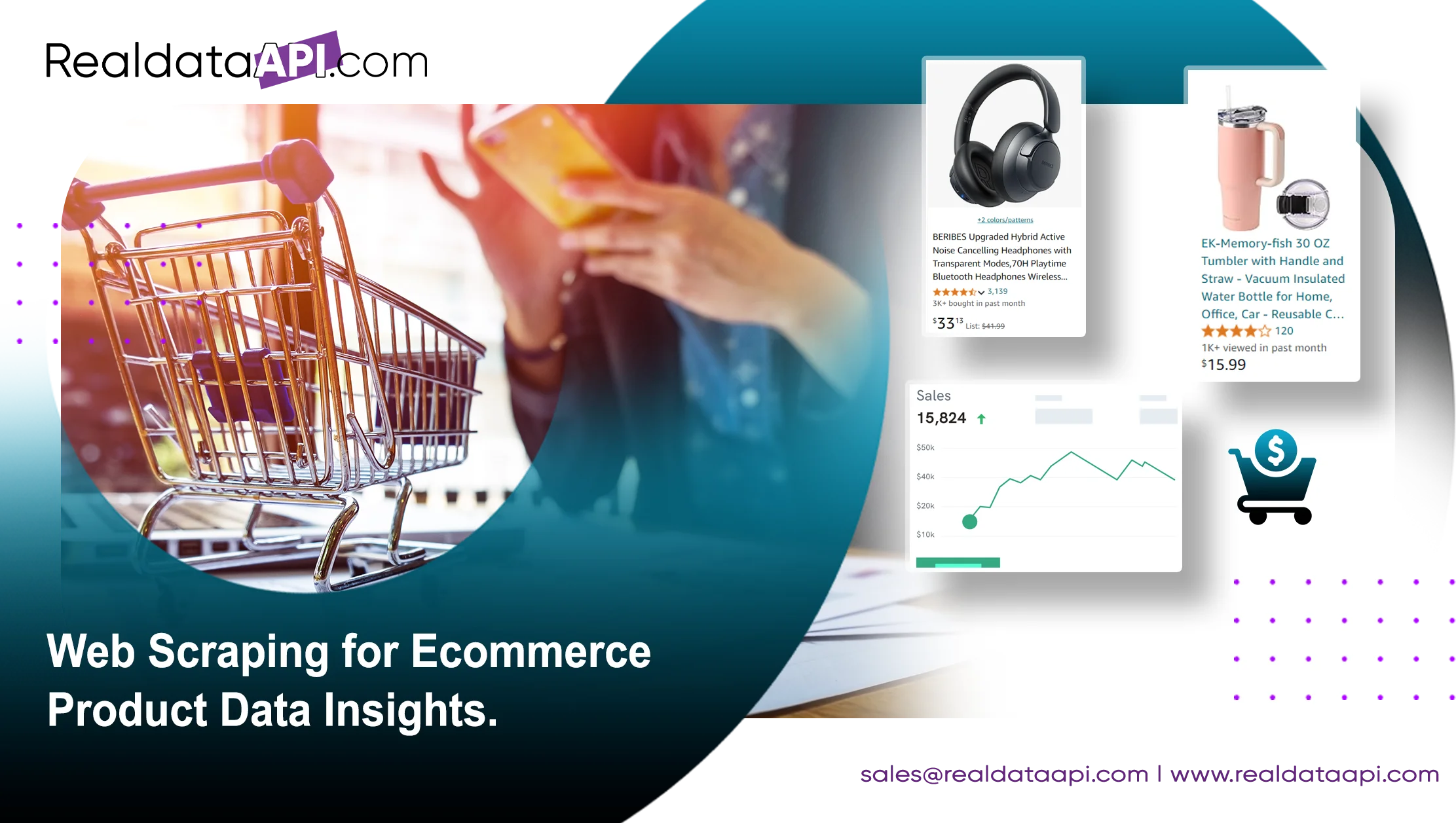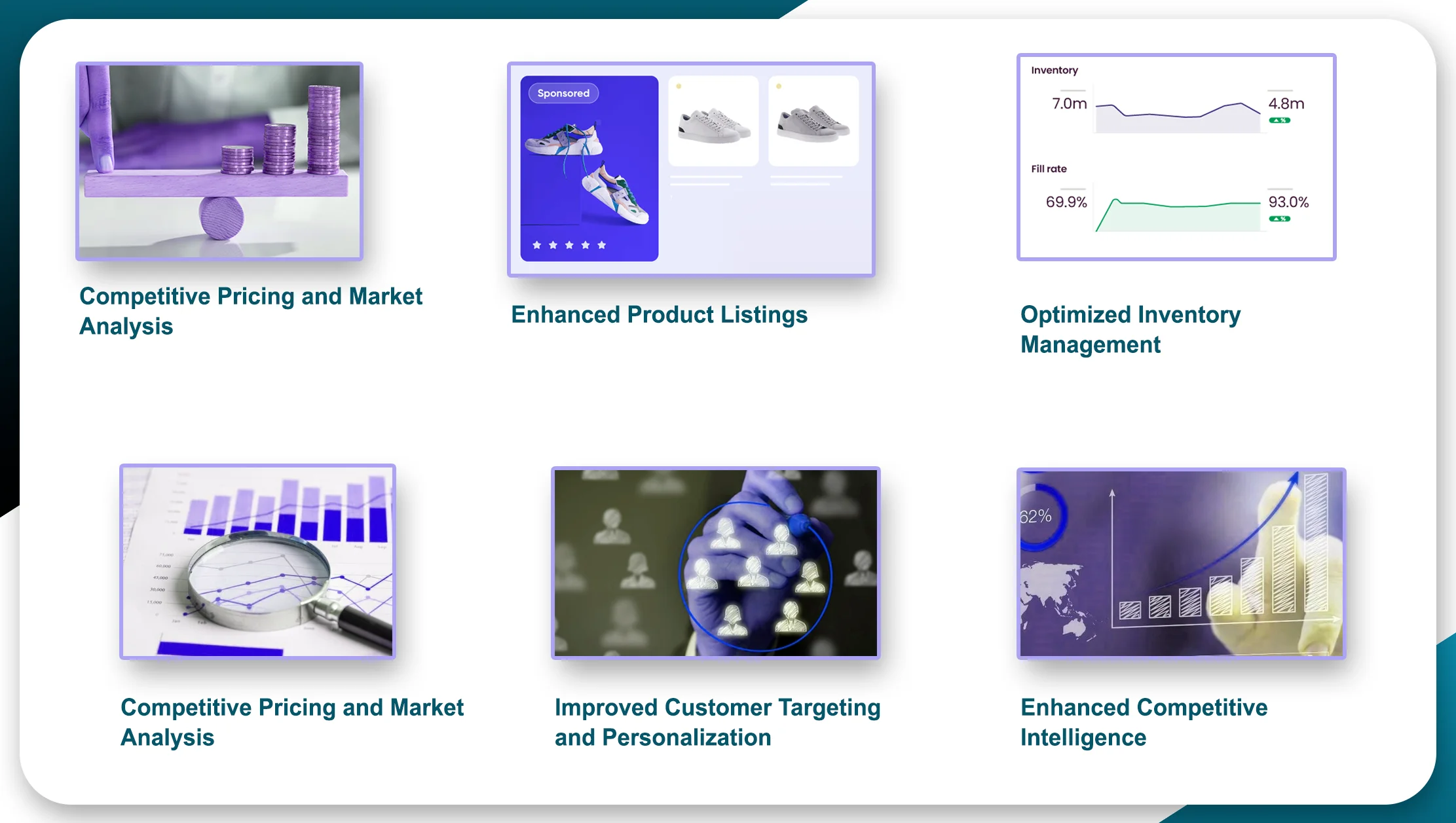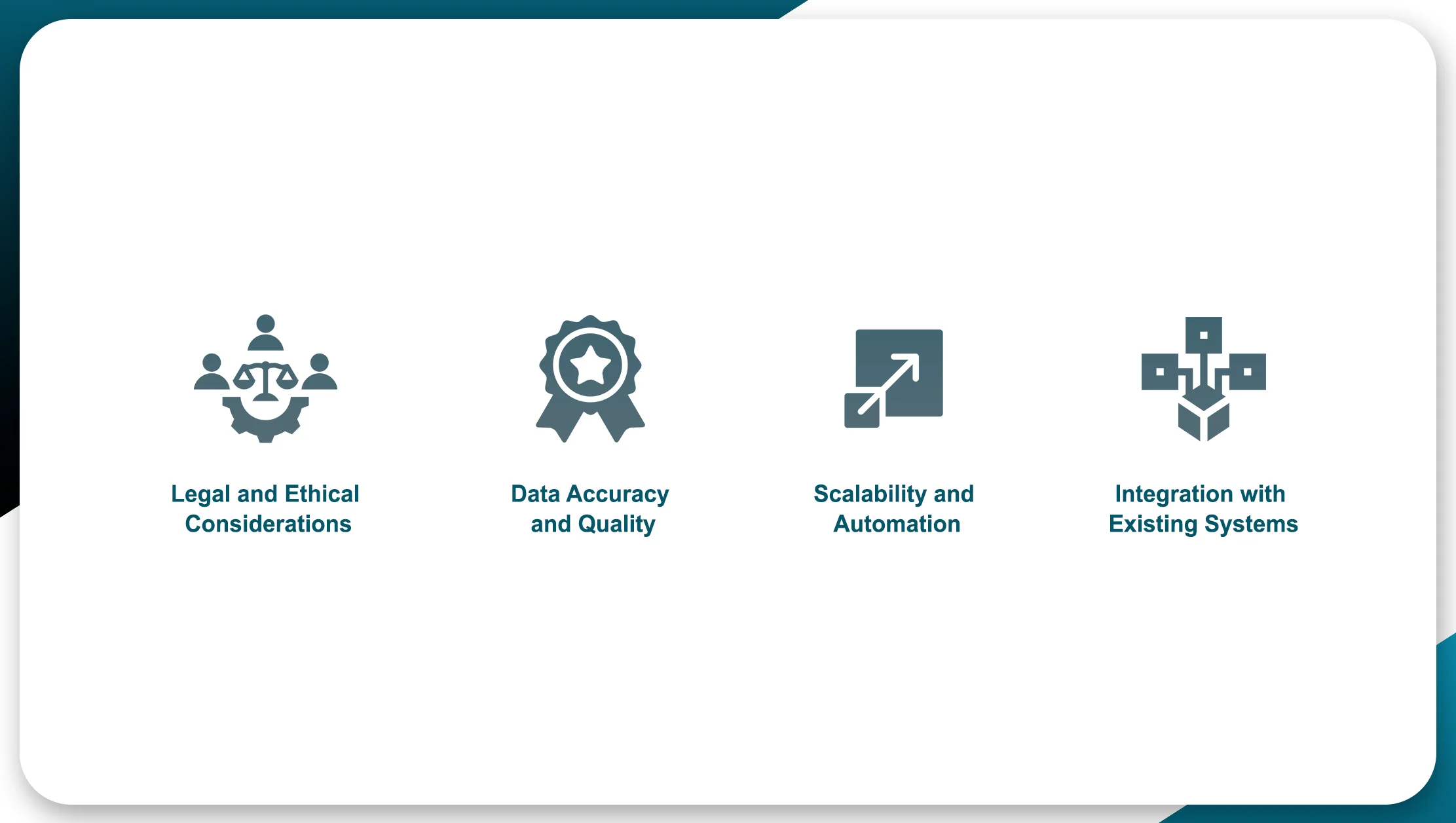

Introduction
In the fast-paced e-commerce landscape, businesses need to utilize every available tool to maintain a competitive edge. One powerful method to gain a competitive edge is through web scraping ecommerce product data . This technique enables businesses to collect valuable information from diverse online sources, transforming it into actionable insights that can significantly boost sales. By employing ecommerce product data collection strategies, companies can gather comprehensive ecommerce product data datasets, which provide a wealth of information on pricing, product descriptions, and market trends.
Ecommerce data scraping allows businesses to monitor competitor pricing, track inventory levels, and analyze customer reviews, offering a deeper understanding of market dynamics. This data can be used to optimize pricing strategies, enhance product listings, and tailor marketing efforts to better meet customer needs.
Incorporating these insights into your sales strategy can lead to improved decision-making, better inventory management, and more effective promotional campaigns. As e-commerce continues to evolve, leveraging the power of web scraping to harness ecommerce product data datasets will be crucial for maintaining a competitive edge and driving sales growth in an increasingly data-driven market. This blog explores how web scraping can enhance your sales strategy, with real-world use cases, statistics, and practical applications.
What is Web Scraping Ecommerce Product Data?

Web scraping ecommerce product data involves extracting information about products from various e-commerce websites. This can include details such as product prices, descriptions, images, reviews, ratings, and stock levels. By automating the extraction process, businesses can efficiently gather large volumes of data, which can be analyzed to make informed decisions.
Ecommerce product data scraping tools and techniques are designed to collect and process data from online retail platforms. This data can be used for competitive analysis, market research, pricing strategies, and more. With the right approach, web scraping can provide invaluable insights that help businesses optimize their operations and drive sales.
Benefits of Web Scraping Ecommerce Product Data

Competitive Pricing and Market Analysis
One of the primary benefits of web scraping is the ability to monitor and analyze competitors' pricing strategies. By regularly scraping data from competitors' sites, businesses can gain insights into pricing trends and adjust their own prices accordingly. This helps ensure that their pricing is competitive and aligned with market conditions.
Statistics: According to a report by Statista, 87% of retailers believe that pricing optimization directly impacts their revenue growth. Web scraping provides the data needed to make informed pricing decisions.
Enhanced Product Listings and Descriptions
Extract ecommerce product data to create detailed and compelling product listings. By analyzing data from top-performing competitors, businesses can identify key features and benefits that resonate with customers. This information can be used to enhance product descriptions, making them more appealing and informative.
Use Case: A leading electronics retailer used web scraping to gather data on product specifications and customer reviews from competitors. They then used this information to improve their own product descriptions, resulting in a 20% increase in conversion rates.
Optimized Inventory Management
Web scraping can help businesses keep track of stock levels across various platforms. By monitoring product availability and stock levels, companies can optimize their inventory management and reduce the risk of overstocking or stockouts.
Statistics: A study by the Aberdeen Group found that businesses with optimized inventory management achieve a 10% higher sales growth compared to those without. Web scraping helps maintain accurate and up-to-date inventory data.
Trend Analysis and Consumer Insights
Scrape ecommerce product data to analyze emerging trends and consumer preferences. By examining data on popular products, customer reviews, and ratings, businesses can identify trends and adjust their product offerings to meet customer demands.
Use Case: A fashion retailer used web scraping to analyze trends in consumer preferences across multiple e-commerce platforms. This allowed them to introduce new products that aligned with current trends, leading to a 15% increase in sales.
Improved Customer Targeting and Personalization
Web scraping can provide insights into customer behavior and preferences. By analyzing data on customer reviews and ratings, businesses can understand what features and attributes are most important to their customers. This information can be used to personalize marketing efforts and target specific customer segments more effectively.
Statistics: Epsilon's report reveals that personalized emails see a 29% higher open rate and a 41% higher click-through rate. By leveraging web scraping, businesses can collect the necessary data to craft personalized marketing campaigns that drive these impressive results.
Enhanced Competitive Intelligence
Ecommerce data scraping allows businesses to gather intelligence on their competitors' product offerings, pricing strategies, and promotional activities. This information can be used to develop strategies that differentiate the business from its competitors and capture a larger market share.
Use Case: A home goods retailer used web scraping to monitor competitor promotions and sales events. They then adjusted their own promotional strategies to better compete, resulting in a 25% increase in sales during key shopping periods.
Key Considerations for Effective Web Scraping

Legal and Ethical Considerations
While web scraping offers immense benefits, it’s crucial to operate within legal and ethical boundaries. Always make sure your scraping practices align with the terms of service of the websites you target, and be mindful of data privacy laws. Adhering to these guidelines helps maintain integrity and avoid potential legal issues.
Data Accuracy and Quality
The accuracy and quality of the scraped data are crucial for making informed decisions. Implement measures to validate and clean the data to ensure that it is reliable and useful.
Scalability and Automation
For businesses dealing with large volumes of data, scalability and automation are key. Invest in robust web scraping tools and infrastructure that can handle large-scale data collection and analysis efficiently.
Integration with Existing Systems
To maximize the benefits of web scraping, integrate the collected data with your existing systems, such as CRM, ERP, and analytics platforms. This ensures that the data is used effectively for decision-making and strategy development.
Practical Steps for Implementing Web Scraping

Define Objectives and Key Metrics
Start by defining the objectives of your web scraping efforts. Determine what specific data you need and how it will be used to drive sales. Identify key metrics that will help you measure the success of your web scraping initiatives.
Choose the Right Tools and Technologies
Select web scraping tools and technologies that align with your objectives and requirements. There are various tools available, ranging from open-source solutions to commercial platforms, each with its own features and capabilities.
Develop and Deploy Scraping Scripts
Develop web scraping scripts or use pre-built templates to collect the data you need. Ensure that the scripts are designed to handle changes in website structure and avoid issues such as IP blocking.
Analyze and Utilize the Data
Once the data is collected, analyze it to derive actionable insights. Use the insights to inform your sales strategies, pricing decisions, and marketing efforts. Continuously monitor and refine your approach based on the results.
Monitor and Maintain
Regularly monitor the performance of your web scraping operations and make adjustments as needed. Keep track of changes in website structures and update your scraping scripts accordingly.
Conclusion
Web scraping ecommerce product data is a powerful tool that can significantly boost sales by providing valuable insights into market trends, pricing strategies, and customer preferences. By leveraging ecommerce product data scraping techniques, businesses can optimize their operations, enhance their product listings, and make data-driven decisions that drive growth. As the e-commerce landscape continues to evolve, staying ahead of the curve with effective data collection and analysis will be essential for maintaining a competitive edge.
Implementing web scraping for extracting e-commerce product data and utilizing e-commerce product data datasets can revolutionize how businesses approach their sales strategies. By understanding the benefits and best practices of web scraping, companies can uncover new opportunities and drive success in an increasingly data-driven world.
For businesses aiming to elevate their sales strategies through e-commerce data scraping, it's essential to select the right tools, comply with legal guidelines, and effectively integrate the collected data. Embrace the power of web scraping to unlock valuable insights and achieve remarkable growth.
Ready to take your sales to the next level? Discover how Real Data API can streamline your data extraction process and provide actionable insights. Start leveraging the full potential of web scraping today with Real Data API !














